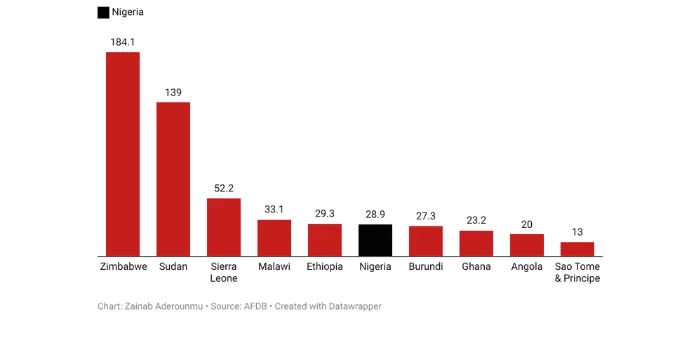Inflation happens when consumer spending on goods and services outpaces their production. Prices can rise due to supply issues that increase production costs or because consumers spend freely in a thriving economy, outpacing production growth. In most cases, inflation stems from a combination of these two forces.
Governments aim to keep inflation at an optimal level that supports economic growth while preserving the purchasing power of the national currency.
In the United States, the Federal Open Market Committee (FOMC)—a branch of the Federal Reserve—manages monetary policy to maintain price stability and maximum employment.
Key Takeaways
- Central banks often fight inflation by reducing the money supply.
- Higher interest rates and adjustments in market operations are the main tools of contractionary monetary policy.
- Although wage and price controls were used in the past, they are now seen as less effective in controlling inflation.
Price Controls: A Historical Perspective
Price controls refer to government-imposed limits on prices or wages. These measures aim to curb inflation by setting maximum prices (caps) or minimum wages (floors).
For example, in 1971, President Richard Nixon froze wages and prices for 90 days to fight inflation. Although this policy was initially popular, it was not enough to contain inflation when prices soared again in 1973. Contributing factors such as the Arab oil embargo and the collapse of the Bretton Woods system complicated inflation control efforts, demonstrating the limits of price regulations.
Economists generally agree that price controls are an ineffective long-term solution, as they can distort markets and worsen inflationary problems over time.
Contractionary Monetary Policy: A Modern Solution
Contractionary monetary policy is now the preferred strategy for fighting inflation. This approach seeks to reduce the money supply by raising interest rates, making borrowing more expensive for businesses and consumers. The resulting decrease in spending helps slow economic growth.
Higher interest rates also encourage banks and investors to buy government securities, which are safer investments compared to stocks. This shift further reduces the availability of money for risky investments, helping to control inflation.
Tools the Federal Reserve Uses to Fight Inflation
1. Federal Funds Rate
The federal funds rate is the interest rate at which banks lend to each other overnight. The FOMC sets a target range for this rate and adjusts two other interest rates—the interest on reserves and the overnight reverse repurchase (RRP) rate—to keep the funds rate within the desired range.
- Interest on reserves: The rate banks earn on their deposits with the Federal Reserve. This is considered a risk-free rate, as the U.S. government has never defaulted on its debt.
- RRP rate: This rate applies to non-bank institutions and allows them to temporarily purchase federal securities overnight, earning a safe return by selling them back the next day.
At its September 18, 2024 meeting, the FOMC set the federal funds target rate at 4.75% to 5%, marking the first reduction since the rate hikes began in 2022 to combat inflation.
2. Open Market Operations (OMO)
OMO refers to the buying and selling of Treasury securities by the Federal Reserve to influence the money supply.
- When the Fed buys securities, it injects cash into the economy, increasing liquidity and lowering interest rates.
- When it sells securities, it pulls money out of the economy, reducing liquidity and raising interest rates.
This tool helps the Fed maintain a healthy balance between economic growth and inflation control.
3. Reserve Requirements
Reserve requirements refer to the minimum amount of money banks must hold in reserve to cover withdrawals. Although the Fed set reserve requirements to zero in March 2020, it retains the power to restore them if needed. Stricter reserve requirements limit banks’ ability to lend, thereby reducing the money supply.
4. Discount Rate
The discount rate is the interest rate the Federal Reserve charges banks for short-term loans through the discount window. By raising the discount rate, the Fed discourages banks from borrowing, further tightening the money supply.
The Challenge of Controlling Inflation
Inflation control can be tricky because higher wages often drive higher spending, which in turn raises prices—a phenomenon known as the wage-price spiral.
Additionally, the effects of monetary policies, such as interest rate changes, are not immediate. It can take up to two years for these policies to show their full impact on inflation.
Who Controls Inflation?
The responsibility of controlling inflation lies primarily with a country’s central bank, which uses monetary policy to regulate the economy.
However, fiscal policy—involving changes in government spending and taxes—can also support inflation control. For example, reducing public spending or raising taxes can help slow demand and ease inflationary pressures.
Conclusion
Modern economies rely on contractionary monetary policies to manage inflation, as price controls have proven ineffective over time. While raising interest rates can curb inflation, it’s a delicate balancing act—too aggressive an approach can lead to recession.
Soft landings are hard to achieve, and governments must tread carefully to reduce inflation without stalling economic growth entirely.




















